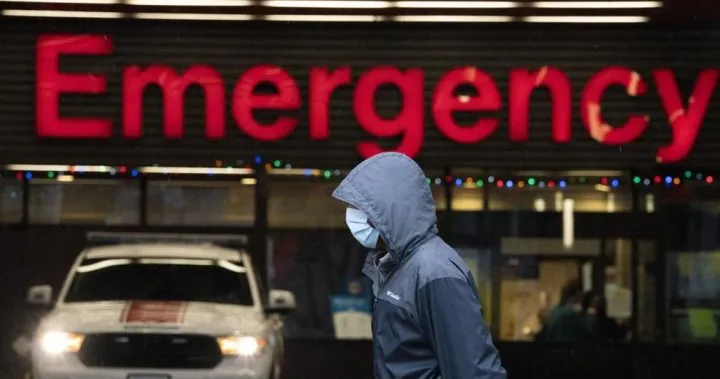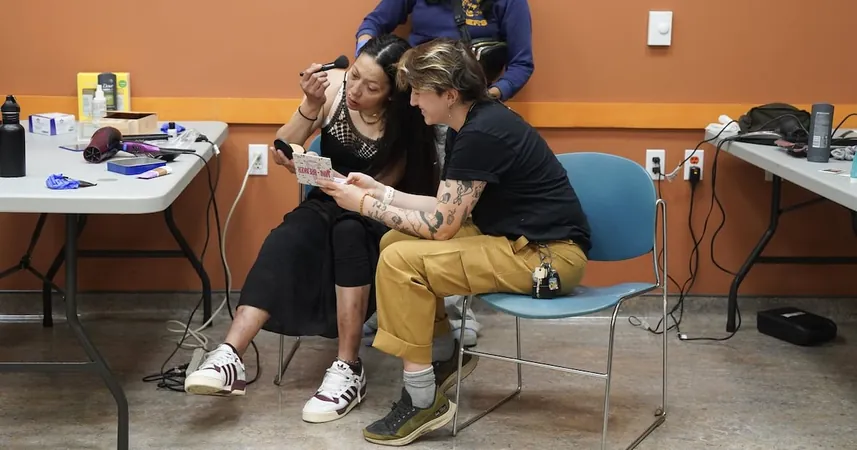
B.C. Nurses Brace for Increased Violence as Mask Mandate Returns Amid Rising Respiratory Illnesses
2025-01-10
Author: Benjamin
B.C. Nurses Brace for Increased Violence as Mask Mandate Returns Amid Rising Respiratory Illnesses
As British Columbia grapples with heightened respiratory illness rates, the province has reinstated a mask mandate in healthcare facilities—a move that, according to the B.C. Nurses Union (BCNU), could expose frontline nurses to increased abuse from frustrated patients and visitors.
Earlier this week, the Ministry of Health announced the reintroduction of the mask requirement in an effort to curb the spread of influenza, RSV, and COVID-19. Unfortunately, the BCNU indicates that it received no prior notice of this policy change, raising concerns that nurses will be placed in the uncomfortable position of enforcing the new rules.
"Our members often find themselves having to remind visitors about the mask mandate, leading to heightened tensions when individuals resist compliance," BCNU President Adriane Gear explained. "This situation is exacerbated by the province's decision to phase out greeters in hospitals, who previously helped communicate the rules. It's unclear who will take on this responsibility, and without proper planning, our nurses are left to handle the fallout."
The union's warnings come on the heels of a significant protest in Vancouver, where over 300 nurses marched to demand safer work environments amid reports of increased workplace violence. The situation is alarming, as healthcare professionals have faced a concerning rise in confrontations in recent months.
While Health Minister Josie Osborne did not provide a direct comment, the Ministry of Health defended the mandate, citing it as a necessary measure to protect vulnerable populations during the winter respiratory illness season. According to data from the B.C. Centre for Disease Control, the province is witnessing an uptick in flu and RSV cases, prompting concerns over hospitalizations and fatalities.
Dr. Brian Conway, medical director at the Vancouver Infectious Diseases Centre, stressed the urgent need for preventive measures. "Many patients in hospitals are sicker than most might realize. Without intervention, we risk severe outcomes, including death, for patients who contract these illnesses," he stated, echoing Gear's sentiments regarding the importance of the mask mandate for public safety.
Despite the BCNU's approval of the mask mandate from a health perspective, Gear emphasized the need for clear protocols on how nurses should address instances of noncompliance. "While masking is a sensible safety measure, enforcing this policy could inadvertently place our nurses in harm's way," she noted.
As the respiratory illness season continues, the mask requirement is likely to remain in effect through spring 2024. With the entire healthcare system already under strain, many are left wondering how this new policy will be effectively communicated and enforced to ensure both patient safety and the well-being of the nursing staff.
In light of these developments, observers are left to speculate whether the province will implement supportive measures for nurses grappling with the dual challenge of ensuring compliance while safeguarding their own health and safety. Stay tuned for updates as this story unfolds.









 Brasil (PT)
Brasil (PT)
 Canada (EN)
Canada (EN)
 Chile (ES)
Chile (ES)
 Česko (CS)
Česko (CS)
 대한민국 (KO)
대한민국 (KO)
 España (ES)
España (ES)
 France (FR)
France (FR)
 Hong Kong (EN)
Hong Kong (EN)
 Italia (IT)
Italia (IT)
 日本 (JA)
日本 (JA)
 Magyarország (HU)
Magyarország (HU)
 Norge (NO)
Norge (NO)
 Polska (PL)
Polska (PL)
 Schweiz (DE)
Schweiz (DE)
 Singapore (EN)
Singapore (EN)
 Sverige (SV)
Sverige (SV)
 Suomi (FI)
Suomi (FI)
 Türkiye (TR)
Türkiye (TR)
 الإمارات العربية المتحدة (AR)
الإمارات العربية المتحدة (AR)